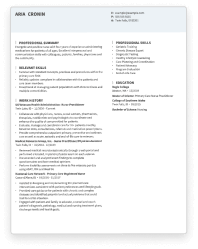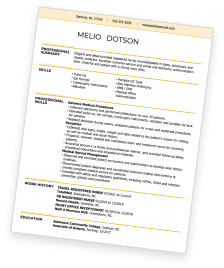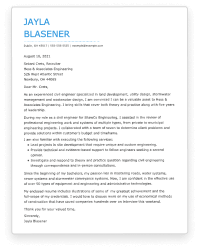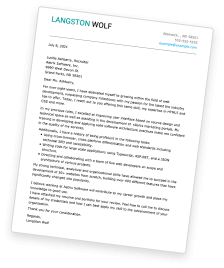Leasing Agent Resumes: Overview
As a leasing agent, you are at the forefront of the real estate industry, providing a crucial service that helps people find their next home or business space..
Your responsibilities often include property showings, market analysis, negotiation of lease terms, application processing, and building relationships with property owners and prospective tenants.
This vital work can be found in a variety of settings, including:
- Residential Apartment Complexes
- Commercial Real Estate Agencies
- Property Management Companies
- Real Estate Development Firms
- Self-Managed Rental Properties
Crafting an outstanding resume is a fundamental step towards landing your next role as a leasing agent.
Our expertly designed examples and downloadable resume templates are here to support you in showcasing your best skills and experiences in the real estate field.
Leasing Agent Resume: Getting Started
Choosing the right format is your first step in crafting a leasing agent resume that stands out.
It’s essential to select a format that not only showcases your qualifications effectively but also captures the attention of potential employers from the get-go.
Leasing agents have three primary resume formats to consider:
Chronological Resumes for Leasing Agents
The chronological resume format is highly favored and focuses prominently on the applicant’s professional experience relevant to the leasing industry.
A leasing agent would list all pertinent experiences in the work history section, such as previous leasing agent positions, property management roles, or any real estate sales experience.
Each entry in the work experience section should offer a detailed description of responsibilities and achievements, along with the job title, employer’s name, location, and dates of employment.
Bullet points listing responsibilities and achievements should utilize strong action verbs and include quantifiable results to provide a clearer and more impactful view of your qualifications.
Chronological resumes are also well-suited for Applicant Tracking Systems (ATS), increasing your resume’s visibility during the initial screening phase.
Functional Resumes for Leasing Agents
Functional resumes put a spotlight on the skills of the applicant, making them suitable for candidates with less relevant experience for the leasing agent role.
For instance, someone transitioning from a different industry might opt for a functional resume format to highlight transferable skills such as sales proficiency, customer service excellence, or negotiation skills.
Though functional resumes can be effective for showcasing specific skills, they often don’t fare well with Applicant Tracking Systems (ATS) and might not engage employers as strongly due to the emphasis on skills over direct experience.
Understanding the limitations of a functional resume is crucial, especially if you are considering this format due to a lack of directly relevant experience.
Combination Resumes for Leasing Agents
A combination resume merges the strengths of chronological and functional formats, placing equal emphasis on both skills and experience.
This versatility allows candidates to display their qualifications comprehensively.
A leasing agent might select the combination format to effectively balance a robust skills section with a solid history of relevant experiences.
Choosing a Resume Format
Selecting the appropriate resume format is a critical decision in the resume writing process. For many, the chronological format is recommended due to its focus on professional experience and compatibility with ATS.
However, it’s important to highlight your experience in a way that aligns with leasing agent responsibilities. If your work history is not directly related to leasing or real estate, identify and emphasize transferable skills that underscore your suitability for the role.
For example, experience in customer service, sales, or hospitality can be reframed to highlight abilities in client relations, negotiation, and problem-solving, all of which are valuable in a leasing agent’s role.
How To Write A Leasing Agent Resume
After selecting the ideal format for your leasing agent resume, the writing process becomes more focused and systematic.
Your resume should be comprised of five essential sections, with the option to add more to distinguish your candidacy further.
These pivotal sections are:
- Contact Information
- Summary or Objective
- Work History
- Skills
- Education
Each section is crucial in portraying your qualifications for a leasing agent position and advancing your professional journey.
Contact Information
Your contact information should include your full name, phone number, professional email address, and your current location (city and state).
You might also want to include your LinkedIn profile or a link to an online portfolio, especially if it showcases your expertise in real estate or customer service.
Make sure your contact information is prominently placed at the top of your resume and is formatted to be easily noticeable.
While it should be eye-catching to make your name stand out, it shouldn’t detract from the content of the rest of your resume.
An example of how a leasing agent’s contact information might appear is:
Alex Martinez
Austin, TX
alex.martinez@domain.com
555-123-4567
Summary or Objective
Directly beneath your contact information, your resume should feature a profile section that serves as a concise introduction to your professional persona.
You have the option between a resume summary and an objective.
A resume summary provides a quick overview of your key skills and experiences, along with your career ambitions. It’s the preferred choice for candidates who have relevant work history to underscore their summary.
An effective resume summary for a leasing agent might read:
“Dedicated Leasing Agent with over 5 years of experience in residential and commercial property management. Skilled in negotiating lease terms, conducting market analyses, and enhancing tenant satisfaction. Demonstrated success in maintaining high occupancy rates and managing multiple properties simultaneously. Committed to leveraging extensive industry knowledge and excellent communication skills to contribute to a property management team’s success.”
On the other hand, a resume objective emphasizes your career aspirations and enthusiasm for the position, making it suitable for those with less direct experience but a strong desire to excel in the field.
A compelling resume objective for a leasing agent could be:
“Motivated and personable recent graduate with a Bachelor’s degree in Real Estate Management, eager to apply academic knowledge and internship experience in a professional leasing agent role. Excellent interpersonal and organizational skills with a keen interest in real estate market trends. Aspiring to develop a career in property management by contributing to the achievement of high client satisfaction and property occupancy goals.”
Remember, whether you opt for a summary or an objective, use this section to highlight keywords relevant to a leasing agent position.
Tailoring your profile to the job description enhances your resume’s visibility to both ATS systems and hiring managers, increasing the likelihood of your application advancing to the next stage.
Work History
The “Work History” section is pivotal in a leasing agent resume, as it illustrates your relevant experiences and accomplishments in the field.
Most hiring managers seek concrete proof of your capabilities, and this section provides a clear picture of your professional journey.
Begin with your most recent job and list your previous positions in reverse chronological order, focusing on roles that are directly relevant to leasing and property management.
This approach helps in making your resume more compelling, so it’s important to emphasize responsibilities and achievements that underscore your suitability for the leasing agent position.
Employ strong action verbs to convey achievement and responsibility, and whenever possible, quantify your accomplishments with numbers or percentages.
Metrics add a layer of credibility to your achievements and help differentiate you from other candidates by clearly demonstrating your value.
Here is an example of how the work history section might look for a leasing agent resume:
Senior Leasing Agent
Downtown Residential Complex, City, State
01/2019 – Present
- Spearheaded the leasing process for a 300-unit residential complex, achieving and maintaining a 98% occupancy rate.
- Negotiated lease agreements, resulting in a 5% increase in average rental rates year-over-year.
- Implemented customer relationship management strategies that enhanced tenant satisfaction scores by 20%.
- Conducted competitive market analysis to inform and adjust leasing strategies, ensuring competitive pricing and offerings.
- Organized and led community engagement events, improving tenant retention by 25%.
- Coordinated with maintenance and property management teams to ensure timely preparation of units, reducing turnaround time by 30%.
This example showcases not just the candidate’s responsibilities but also their achievements, providing a clear indication of their impact in previous roles.
Remember, illustrating your success through quantifiable results makes your experience more tangible and compelling to potential employers.
Skills
For the leasing agent position, creating a skills section that lists your most pertinent hard skills and soft skills is essential.
Similar to the work history, this section should prioritize skills directly related to the leasing agent role, showcasing a balanced mix of technical knowledge and interpersonal abilities.
Some key hard and soft skills for leasing agents include:
Top 5 Hard Skills for Leasing Agent Resumes
- Lease Negotiation: Proficiency in negotiating lease terms that meet the needs of both property owners and tenants is a fundamental skill for leasing agents.
- Property Law Knowledge: Understanding of local and federal property laws to ensure all lease agreements are compliant and protect all parties involved.
- Market Analysis: Ability to analyze the real estate market trends to provide valuable insights to clients and adjust leasing strategies accordingly.
- Customer Relationship Management (CRM) Software: Aamiliarity with CRM platforms to manage tenant information, track interactions, and enhance customer service.
- Digital Marketing: Skills in online advertising and social media marketing to effectively promote available properties and attract potential tenants.
Top 5 Soft Skills for Leasing Agent Resumes
- Communication: Exceptional verbal and written communication skills to clearly convey information to tenants and property owners.
- Customer Service: A strong orientation towards providing excellent service to ensure tenant satisfaction and retain business.
- Problem-Solving: Ability to quickly identify and resolve issues, whether they relate to lease agreements, property concerns, or client disputes.
- Adaptability: Flexibility to navigate the ever-changing real estate market and adjust strategies to meet the needs of clients.
- Organizational Skills: Proficiency in managing multiple properties, coordinating showings, and keeping accurate records.
An example of how a leasing agent might format their skills section:
Skills
- Negotiation and Lease Drafting: Expert in crafting lease agreements that balance the needs of both tenants and landlords.
- Market Analysis: Skilled in utilizing market data to guide pricing strategies and property positioning.
- CRM Software Proficiency: Experienced with Salesforce and Zoho CRM for efficient client and property management.
- Digital Marketing: Proficient in using social media and online platforms for property promotion.
- Customer Service: Committed to providing exceptional service, enhancing tenant satisfaction and loyalty.
This targeted skills list demonstrates your readiness for a leasing agent role by highlighting relevant competencies in both the technical and interpersonal domains.
Education
The education section of your leasing agent resume should list your highest degree first, followed by the institution’s name and its location.
You may also include your graduation date, pertinent coursework, and any honors or accreditations you’ve received.
Depending on its relevance to the leasing agent position and the amount of space you want to allocate, you may opt to integrate this information into other sections or keep it separate.
An example of an education section for a leasing agent might be:
University of Georgia
Athens, GA
Bachelor of Business Administration (B.B.A.), Real Estate
Many leasing agent positions require knowledge of real estate principles, and while specific educational requirements may vary, highlighting relevant education can set you apart. Always tailor this section to meet the expectations outlined in the job description.
Additional Sections
Consider adding additional sections to your resume if they provide value and are relevant to the role you’re applying for.
For a leasing agent, these sections could include:
- Certifications: Any certifications related to real estate or property management, such as a Real Estate License or a Certified Apartment Leasing Agent (CALA) certification, can be incredibly beneficial.
- Volunteer Experience: Volunteer work that demonstrates skills relevant to a leasing agent position, especially if it involves community engagement or customer service.
- Professional Associations: Membership in professional associations like the National Apartment Association (NAA) showcases your commitment to staying current in the industry.
- Awards and Honors: Any recognitions you’ve received that highlight your achievements or contributions in real estate or customer service.
- Relevant Hobbies: Hobbies that demonstrate skills applicable to a leasing agent, such as photography (useful for property listings) or blogging (great for marketing properties online).
Including these sections can help you create a well-rounded resume that showcases a diverse range of qualifications and interests, making you a more compelling candidate for the leasing agent position.
Top Certifications For Leasing Agents
Certifications can significantly enhance a leasing agent’s resume by providing formal recognition of their skills and knowledge in the real estate and property management fields.
While not always mandatory, having professional certifications can set you apart in the job market and demonstrate your commitment to your career.
Here are some of the most sought-after certifications for leasing agents:
- National Apartment Leasing Professional (NALP): Offered by the National Apartment Association, the NALP certification is designed for leasing consultants, demonstrating their proficiency in leasing management and residential leasing.
- Certified Apartment Manager (CAM): While broader than just leasing, the CAM certification covers essential aspects relevant to leasing agents, including occupancy rates, tenant relations, and property management.
- Real Estate License: In some states, leasing agents are required to hold a real estate license to legally facilitate property rentals. Obtaining a real estate license involves completing a state-approved education program and passing a licensing exam.
- Certified Leasing Consultant (CLC): This certification focuses on the skills necessary for successful leasing consultants, including sales techniques, lease documentation, and customer service.
- Accredited Residential Manager (ARM): Offered by the Institute of Real Estate Management (IREM), the ARM certification targets real estate managers but is beneficial for leasing agents looking to advance their careers in property management by demonstrating a deep understanding of residential property operations.
8 Tips For Writing A Leasing Agent Resume
Customize Your Resume: Adapt your resume for each leasing agent role you apply for, emphasizing the experience and skills most relevant to each position’s specific requirements.
Use Action Verbs: Start bullet points in your work history with dynamic action verbs like negotiated, managed, facilitated, or enhanced to vividly describe your responsibilities and achievements.
Quantify Achievements: Where possible, include numbers, percentages, or specific outcomes to quantify your successes. For example, mention the percentage increase in property occupancy or the number of leases you successfully negotiated within a certain period.
Incorporate Keywords: Scan the job listing for keywords and phrases used in the description of a leasing agent’s responsibilities and requirements, and weave these into your resume. This strategy helps your resume pass through Applicant Tracking Systems (ATS) and catch the hiring manager’s eye.
Highlight Customer Service Skills: Excellent customer service is crucial in a leasing agent role. Detail your experience in building relationships, resolving conflicts, and enhancing tenant satisfaction.
Showcase Your Market Knowledge: Mention any experience you have in analyzing market trends and using this information to advise clients or adjust leasing strategies.
Digital Proficiency: In today’s market, being able to market properties online is a key skill. Highlight your experience with digital marketing tools, social media platforms, and property listing sites.
Proofread for Professionalism: Ensure your resume is free from typos, grammatical errors, and formatting issues. A well-polished resume reflects your professionalism and attention to detail, traits highly valued in real estate professions.
Helping Job Seekers Like You


Use Hloom's Resume Builder
Key Takeaways
- The chronological resume format is generally preferred for leasing agents, as it highlights relevant professional experiences that are critical for the role.
- Essential education and certifications for leasing agents, such as a Real Estate License or Certified Apartment Leasing Agent (CALA) certification, should be prominently listed to establish credibility and expertise in the field.
- Including a balanced mix of hard and soft skills, particularly those emphasizing customer service, market knowledge, and digital marketing abilities, can significantly enhance a leasing agent’s resume.
- Ensuring the resume is compatible with Applicant Tracking Systems (ATS) by incorporating relevant keywords from the job description and maintaining a clear, professional format is crucial for making it past initial screenings and into the hands of hiring managers.
Use Hloom's Cover Letter Builder














